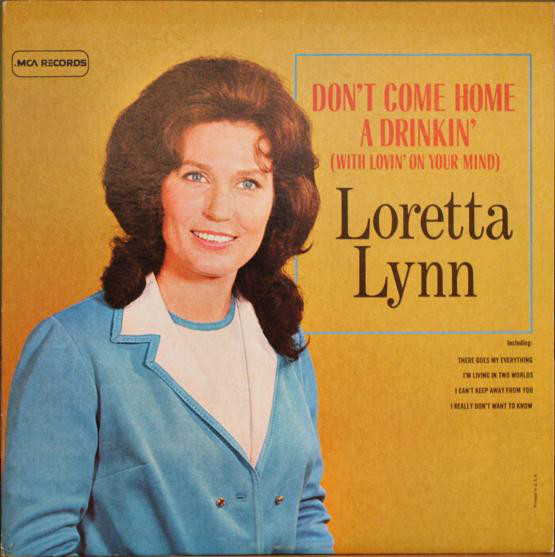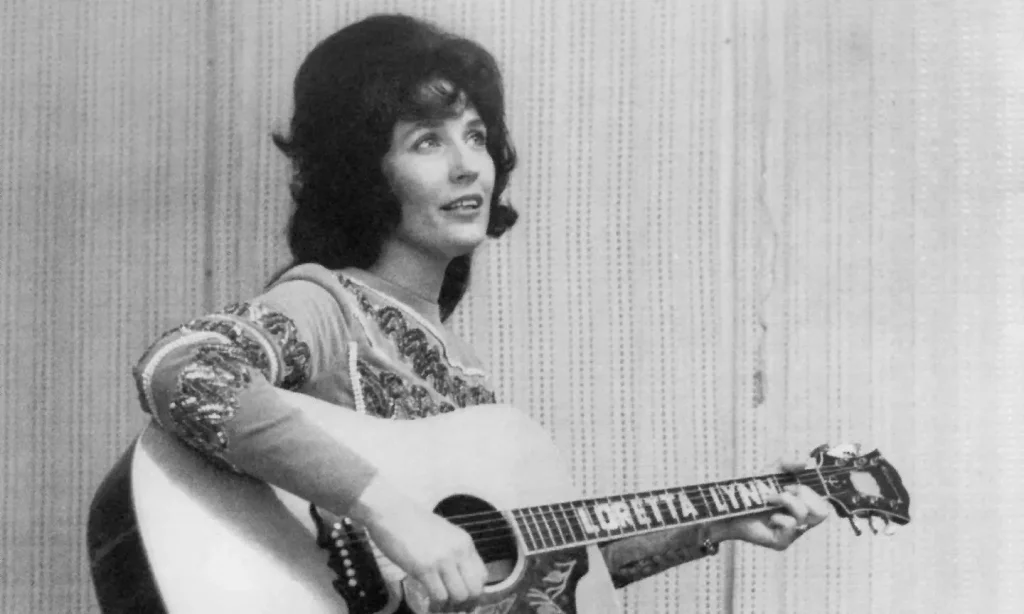
If there's one woman in the American music industry who has carved out her own path despite the headwinds, it's Loretta Lynn. If you've never heard her name, you've probably already been lulled to sleep by one of her poignant, cutting ballads. Loretta is more than an artist, she's a reflection of deepest America, a powerful female voice in a male-dominated world.
From a modest background, Lynn grew up in a wooden shack in Kentucky, a setting that has influenced many of her songs. She is the youngest of eight children, and her childhood was not an easy one. At the age of 15, she married Oliver “Doolittle” Lynn, who later became her manager, and embarked on her country music adventure.
I'm writin' about life, and this is what happens in life.
Loretta Lynn
Loretta has never been afraid to speak her mind. In an industry where women were often relegated to the background, Lynn chose to tackle taboo subjects. Her song “The Pill”, released in 1975, dealt bluntly with contraception, a controversial subject at the time. She said: “I'm writin' about life, and this is what happens in life.

Her career has been fraught with challenges, but she has always persisted. Fun fact: did you know that Loretta Lynn learned to play the guitar by borrowing it from a neighbour? She wrote her first songs inspired by the life around her, from the mountains of Kentucky to life as a stay-at-home mother.
Her friendship with Patsy Cline, another great lady of country music, also left its mark on the history of music. Their relationship, based on complicity and mutual admiration, was a source of inspiration for Loretta. She dedicated a song to her friend after her tragic death in a plane crash, entitled “I Remember Patsy”.
Loretta Lynn's perseverance, her ability to break taboos and her undeniable talent have made her an icon. In 2020, she celebrated her 87th birthday and continues to perform on stage. She is a source of inspiration for many artists, and her music is timeless.
You've got to continue to grow, or you're just like last night's cornbread – stale and dry
Loretta Lynn
Loretta Lynn is a key figure in American music. She has managed to blend tradition and modernity, while remaining true to herself. As she so aptly put it: “You've got to continue to grow, or you're just like last night's cornbread – stale and dry.”
And it's certain that Loretta Lynn is not about to become “stale and dry”.
The album Don't Come Home a Drinkin' (With Lovin' on Your Mind)
While the hippies were waging a revolution in San Francisco and the Doors were releasing their first album, in the heart of Tennessee a certain Loretta Lynn was unveiling her opus, Don't Come Home a Drinkin' (With Lovin' on Your Mind). If the title immediately evokes a certain marital tension, the album as a whole reveals much more than a simple feminine claim.
It's a cry from the heart, a love letter to America that's both tender and angry.Where psychedelic rock dominated the West, country music reigned supreme in the South. And among its most fervent exponents, Loretta Lynn stands out. With “Don't Come Home a Drinkin' (With Lovin' on Your Mind)”, the artist offers us a condensed version of her art: a powerful voice, sharp lyrics and a catchy melody.
The eponymous title track, which opens the album, sets the tone. An independent woman, fed up with the disrespectful attitude of her alcoholic husband. But far from feeling sorry for herself, Lynn claims her place, her respect.
In an industry dominated by male figures, Loretta takes the reins. This song, as well as being a hit, became an anthem for all those women who, at the time, were trying to assert themselves.
The album didn't stop there. “Saint to a Sinner” demonstrates Lynn's vocal mastery, oscillating between melancholy and resilience. “I Really Don't Want to Know” is about unconditional love, the kind that embraces both light and shadow. Each track on this opus is a nugget, highlighting a different facet of life as a woman, wife and lover.
This album was Loretta Lynn's first to be certified gold. Proof, if proof were needed, of the undeniable impact of this work on its era.
But the real strength of “Don't Come Home a Drinkin' (With Lovin' on Your Mind)” lies in its ability to transgress the boundaries of the country genre. By skilfully blending traditional sounds with progressive themes, Loretta Lynn has reached a much wider audience than the purists. She gave a voice to those who were too often silenced.
The song I Really Don't Want To Know
Originally written by Howard Barnes and Don Robertson, “I Really Don't Want to Know” emerged in the 1950s. It tells the story of a broken heart who, despite his curiosity and pain, prefers to remain ignorant of his former love's love affairs. A universal theme, a raw emotion.
The strength of this song lies in its simplicity. The lyrics are straightforward and to the point. They evoke a silent pain, that of a lost love and a soul trying to heal. “How many arms have held and hated, I really don't want to know”, they sing, touching on the universality of the pain of love.
Among the many interpretations, Loretta Lynn's deserves particular attention. With her melodic voice tinged with sadness, Lynn transforms this ballad into an emotional odyssey. Every note, every vocal inflection, reminds us of past pain, but also of hope for a better future. Her version is all the more poignant because she infuses the song with her own experience, her own wounds. For Lynn, ‘I Really Don't Want to Know' is not just a song, it's an outlet, a cry from the heart.
But what makes “I Really Don't Want to Know” a masterpiece of the musical repertoire is its ability to unite generations. From Elvis Presley to Solomon Burke, the great names in music have added their own touch to this ballad, making it unique each time, while respecting its essence.
Where to listen Don't Come Home a Drinkin' (With Lovin' on Your Mind) ?
- Listen Don't Come Home a Drinkin' (With Lovin' on Your Mind) on Spotify
- Listen Don't Come Home a Drinkin' (With Lovin' on Your Mind) on Deezer
- Listen Don't Come Home a Drinkin' (With Lovin' on Your Mind) on Youtube